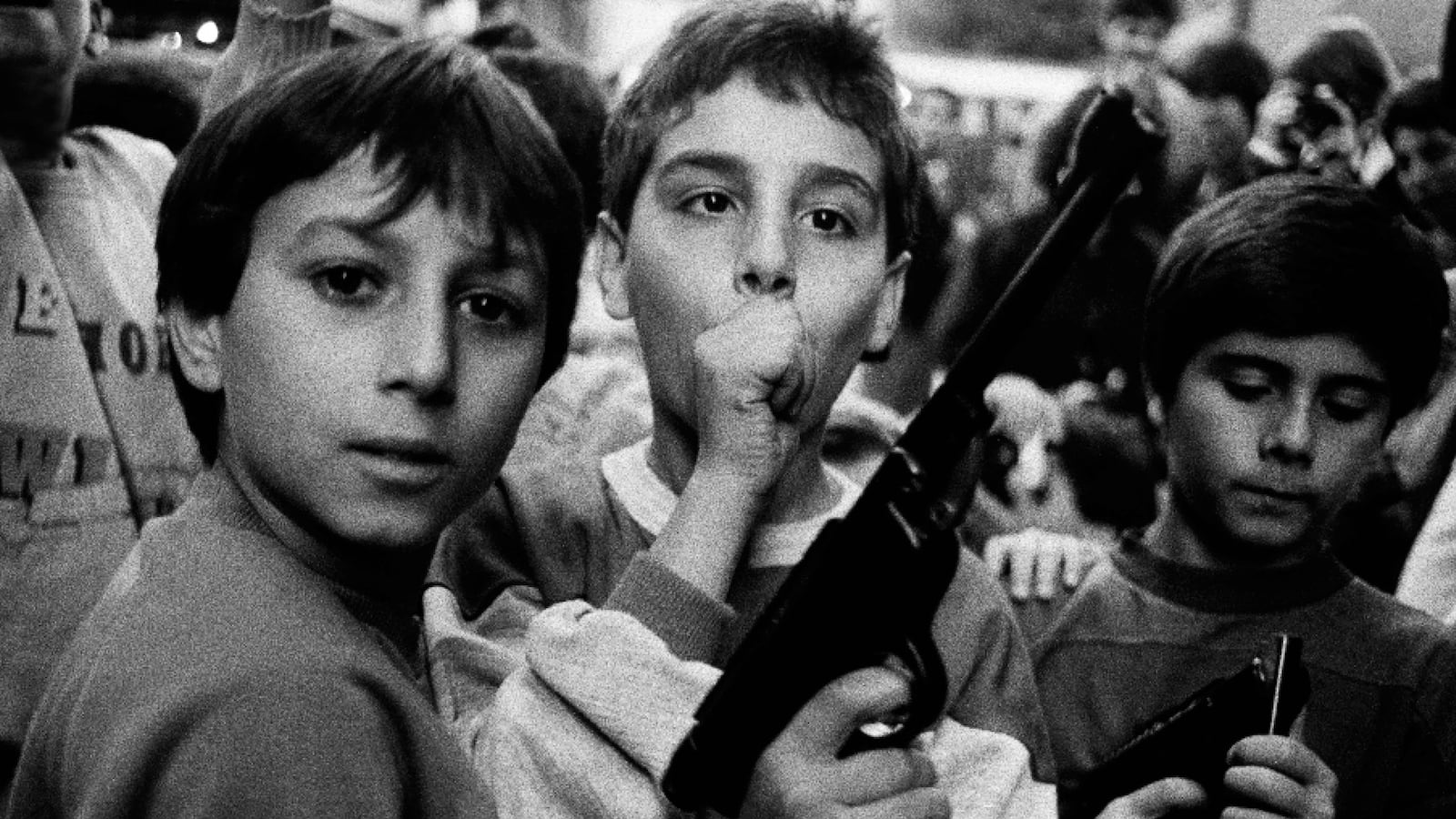ROME — Letizia Battaglia has smelled the blood and heard the desperate cries of despair caused by the Sicilian Mafia’s wrath. At 81, this truly extraordinary photographer remembers not just the moments of horror she witnessed, but what was going on outside the frame, from the background sounds to what she was doing when the call came in to rush to the scene. She can describe all of it perfectly.
“I was not afraid in these moments,” she told me in a recent interview. “I was full of rage, because it did not seem possible that one man killed another man. In Palermo it was like a war, but the enemy didn’t come from somewhere else. It was brothers killing each other.”
Her black and white photography book Anthology, published by Drago will be released in the United States this month. In it, she manages to choose just 168 shots from her 600,000-image archive. Among them are pictures of Mafia judges and police officers, many dead in their cars with blood so fresh it glimmers like water. There are also pictures of daily life in her native Sicily, including young girls playing on the cobbled streets and wealthy women in fur collars sipping champagne.

She also headlined the Imbavagliata (gagged) exhibition in Naples last week, showcasing conflict photographers from around the world, and her work will be featured in an exhibition at Rome’s MAXXI National Museum of the 21st Century Arts.
And she is still taking pictures. Now she says she focuses on beauty and youth, but the many years spent chasing death continue to haunt her.
“I remember when the telephone call came. Run! Run! There is something in this street or that,” she says. “We go out with the Vespa… We didn’t know why we were running, we only know that something was happening. When I think about it now I feel the nausea I felt then to meet death so many times. Violent death is terrible. There is nothing like the smell of the blood of fresh, violent death.”
Battaglia was married at 16 and had three daughters before her 21st birthday. By the time she was 30, she asked her husband for a divorce and decided to get on with her career.
By then it was 1965 and Palermo was under siege by the Cosa Nostra.
She had originally dreamed of being a writer, but when she got her first assignment, her editor asked her where the pictures were to go with the article. She bought a camera and headed to the front line in her lifelong battle against the Mafia.

Battaglia was the only female photographer doing that type of work at the time, and she received threats and warnings not just from mobsters, but also from politicians and businessmen who were complicit in corruption.
When Italian prime minister Giulio Andreotti was indicted for Mafia collusion in 1993, police sequestered her archives and found two photos that tied the former prime minister to the mob. He was later acquitted for the crimes despite the damning photos.
But Battaglia also received awards for her work. She was the first woman ever to receive the W. Eugene Smith Grant for Humanistic Photography. She also received scores of awards in the United States and Europe over her long career.

She says that over the years, the Mafia has changed with the times. “It’s worse perhaps now,” she says. “It’s dangerous like ISIS. It’s not like The Sopranos or the Godfather films.
“Now there are drugs, cocaine, arms trafficking. Now the Mafia don’t kill policemen and judges like they used to. It is no longer about blood. Now it is about corruption, and in many ways that is worse.”
As she turns the pages of her book, Battaglia remembers each photo as if the visual sensation brings back everything else: the feel of the street, the scent of the people alive and dead, the taste of the air. Some of the pictures make her smile. Others make her turn away.

“We knew all these people,” she says, stopping to linger over photos of anti-Mafia judges Giovanni Falcone and Paolo Borsellino, who were killed in separate Mafia hits in 1992. “The best judges, the best policemen, the best people were killed. I can’t finish my life accepting that this is the way it is.”
In her ’50s and ’60s, Battaglia became a social activist, leading protests and doing everything she could to fight the Mafia, corruption and injustice.
“I did my part. I did my little part. I was not complicit. My job, my work, was to denounce corruption and to exalt beauty,” she says. “We were obliged to face these terrible situations. I’m not a fanatic. I want to laugh. I want to love. I want to enjoy life, but we are slaves of this situation.”
Now in her ’80s, Battaglia has no intention of stopping. She is hoping to open a school for photographers in her native Palermo and she still hopes to become a writer. “I was there with my camera and I forgot all about writing,” she says, between puffs of a cigarette. “Maybe now I’ll write a book. Perhaps now I’ll become a writer.”






